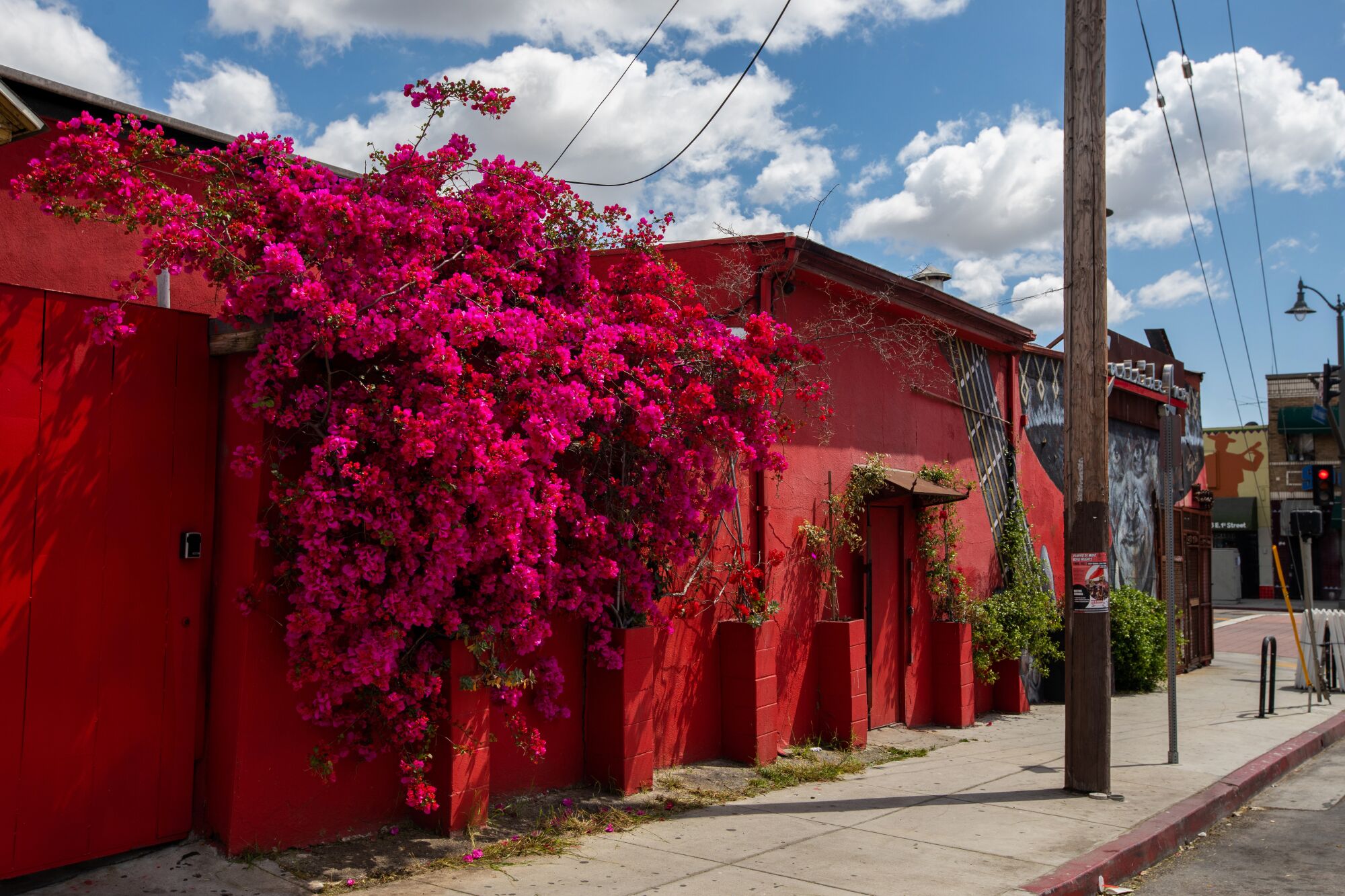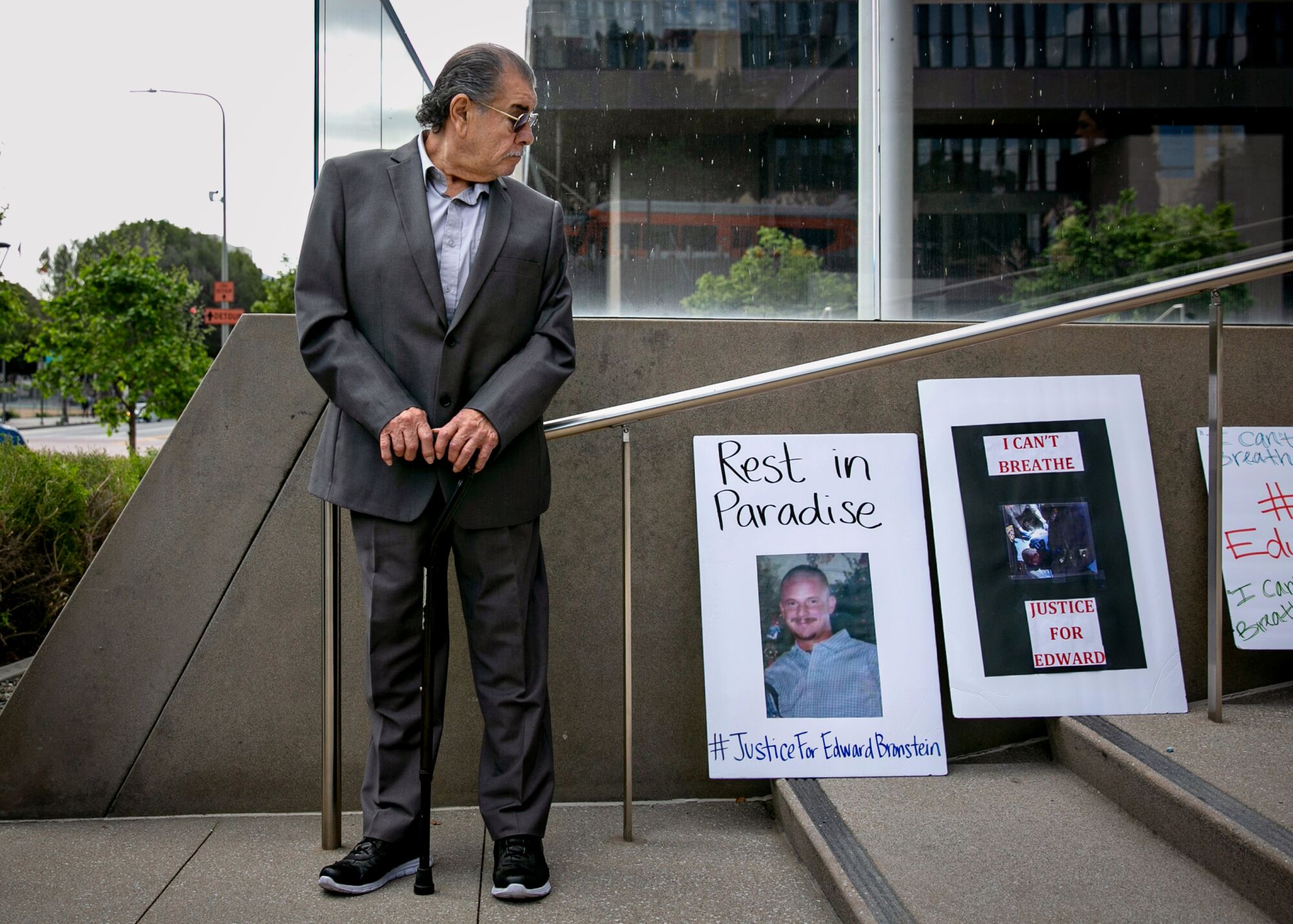Hello, and welcome to this week’s selection of top visual stories by Los Angeles Times photographers.
::
The Title 42 public health order policy expired on Thursday. With the arrival of COVID-19, the Trump administration enacted a novel interpretation of a rule created in 1944, allowing U.S. border officials to keep asylum seekers out of the U.S. during the pandemic, citing the potential public health threat.
Hours after the Biden administration ended the policy, U.S. officials said they hadn’t seen an influx of crossings at the border or any significant increase in migration. The end of Title 42 ushers in a new era for U.S. border control, and President Biden is urging asylum seekers arriving at the southern border to voluntarily return to Mexico. The administration is further seeking to curb an influx of migrants with a policy that would limit asylum access for those who cross through a third country on the way to the U.S. and do not seek protections on the way to the southern border. The American Civil Liberties Union filed a lawsuit in federal court on Thursday aiming to block the policy.
You can view our complete coverage of the end of Title 42 and our photographers’ images from the southern border.
Border Patrol agents make contact with migrants who are hoping to cross into the United States from Tijuana on May 11, hours before the Title 42 pandemic-era policy ended.
(Carolyn Cole / Los Angeles Times)

Some of the items left by migrants who turned themselves in to U.S. Border Patrol agents Friday in Somerton, Ariz.
(Gary Coronado / Los Angeles Times)

A man looks up at the border wall while waiting to surrender to the U.S. Border Patrol in San Luis Rio Colorado, Mexico.
(Gary Coronado / Los Angeles Times)
::
Retired California boxers may be eligible for a boxers’ pension, the only one of its kind in the country. The plan began making payments to boxers in 1999 and, to date, has provided 235 retired fighters a total of $4 million. However, several boxers contacted by The Times said that they were unaware of the program or that they are owed payments.

Hector Lizarraga, 56, was a champion featherweight known for his toughness in the ring and a “deadly body shot.” Lizarraga took up boxing as a teenager to defend himself from bullies and fell in love with the sport. He is owed $39,000 from the California Professional Boxers’ Pension Plan.
(Robert Gauthier / Los Angeles Times)

Gonzalo Montellano, 65, is a retired lightweight with a record of 35-3-2. He is owed $20,000 from the California Professional Boxers’ Pension Plan. At right, Montellano trains a student in his Bakersfield garage.
(Robert Gauthier / Los Angeles Times)
::
On Wednesday, Sen. Dianne Feinstein voted in the Senate for the first time since she left in mid-February for an extended absence due to a bout with the shingles virus. The senator is back at work but in need of helping hands as she eases back into a grueling schedule. She is still experiencing some side effects, including vision and balance issues.

Sen. Dianne Feinstein (D-Calif.) is escorted by Senate Majority Leader Charles E. Schumer (D-N.Y.), left, after she arrived at the U.S. Capitol on Wednesday.
(Kent Nishimura / Los Angeles Times)
::
The atmospheric rivers are gone, but the water they dumped on Southern California supercharged this spring’s blooms and prompted some dormant plants to bloom for the first time in years. To the delight of humans and bees alike, native wildflowers and invasive weeds are thriving.
“You can go for a walk and under your feet are millions of seeds just sitting there in the seed bank. That potential for beauty in a landscape that is otherwise essentially barren in a non-good year is so freaking cool.”
— Nick Jensen, director of the conservation program at the California Native Plant Society

A bee lands on a Pride of Madeira plant near a walking path in Redondo Beach. Following a record-breaking rainy season this year, conditions are ripe for flora growth in and around Los Angeles County.
(Francine Orr / Los Angeles Times)

Bougainvillea clusters hang down a wall along Vicente Fernández Street near 1st Street in Boyle Heights.
(Francine Orr / Los Angeles Times)

An Eastern redbud tree in front of a purple wall in South Los Angeles.
(Francine Orr / Los Angeles Times)
::
The bandits tore the birds from their cages, stuffed them into backpacks and fled.
— from a story by Times staff writer Hannah Fry
How do you break another human being’s heart on purpose? You steal their pet. Southern California is seeing a rash of parrot thefts. The pricey feathered companions have been stolen from pet stores, porches, even a vet.

Michelle Martin, owner of Feed Barn in Dana Point, holds Rio, a blue-fronted amazon. Three of Martin’s birds were stolen when her store was burglarized in December, part of a surge in parrot thefts across Southern California.
(Allen J. Schaben / Los Angeles Times)
::
In 2020, a few months before George Floyd spoke his last words, “I can’t breath,” a California man — Edward Bronstein — used the same words when pleading with California Highway Patrol officers as they pinned him down, kneeling on his back and restricting his airways after a traffic stop. Bronstein’s desperate last moments were caught on video.
“These officers’ erratic behavior was inhuman.”
— Edward Tapia, the father of Edward Bronstein
On Wednesday, California announced it will pay $24 million to his family to settle a wrongful-death lawsuit. The civil rights settlement is the largest in California history.

“These officers’ erratic behavior was inhuman,” Edward Tapia, the father of Edward Bronstein, said at a downtown Los Angeles news conference announcing Wednesday’s $24-million settlement with the state.
(Jason Armond / Los Angeles Times)
::
California has a big plan for young children. Gov. Gavin Newsom said that by 2025 nearly 400,000 4-year-olds would be enrolled in an additional year of public education called transitional kindergarten. But as the state expands what is expected to become the largest universal prekindergarten program in the country, schools struggle to recruit and accommodate young learners.

Transitional kindergarten students observe ladybugs at Oropeza Elementary School in Long Beach.
(Christina House / Los Angeles Times)
::
And finally, to close off, enjoy a little bit of magic captured by our photographer Allen J. Schaben at the Los Angeles County Fair, which continues through May 29 at the Fairplex in Pomona.

Fairgoers enjoy a ride at the Los Angeles County Fair at the Fairplex in Pomona.
(Allen J. Schaben / Los Angeles Times)
::
This story originally appeared on LA Times

